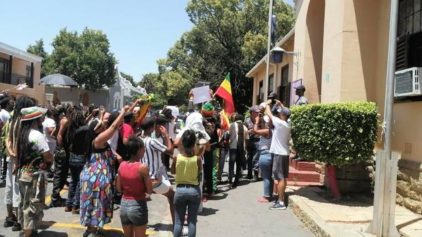Murder charges against 270 South African miners involved in a violent clash with police have been dropped by the state, laying some of the controversy to rest. An official announcement by South Africa’s national director of prosecutions Nomgcobo Jiba was made on Sunday, confirming that the charges had been suspended, with a final decision to come later.
“The murder charge against the current 270 suspects, which was provisional anyway, will be formally withdrawn provisionally in court on their next court appearance,” Jiba told reporters. “Pronouncement on final charges to be preferred against any persons involved will only be made once all investigations have been completed.”
All of the workers have been held in custody since the August 16 incident that left 34 of their fellow miners dead. In what was described as the worst showing of police violence since the end of apartheid, a total of 112 were left dead or wounded as police tried to suppress a wildcat strike at the Lonmin platinum mine, northwest of Johannesburg. Once their addresses are verified, South African courts will begin releasing the minors on Monday, expecting to have them all home by the end of the work week.
On Friday, South Africa’s Justice Minister Jeff Radebe demanded that prosecutors explain why the miners were being charged in the deaths of co-workers shot by the police. A number of lawyers within the country labeled the 2 week imprisonment as unjust, and addressed President Jacob Zuma in an open letter. Jiba defended the court’s action, based on a common purpose law that allows a group of people to be charged for committing a criminal act together. Prior to the shooting, clashes between police in the miners had already led to 10 deaths, including two police officers.
The miners were on strike for higher wages, requesting an increase of about $125 per month. Lonmin’s mine has remained shutdown since the incident, but new talks will begin Monday, coinciding with the miners’ release.


